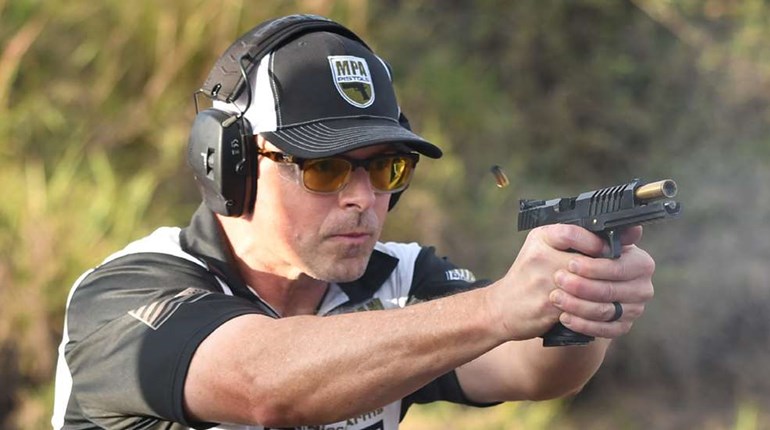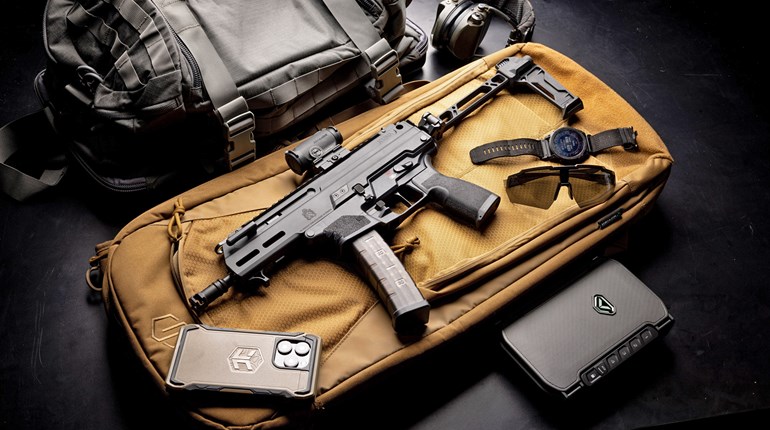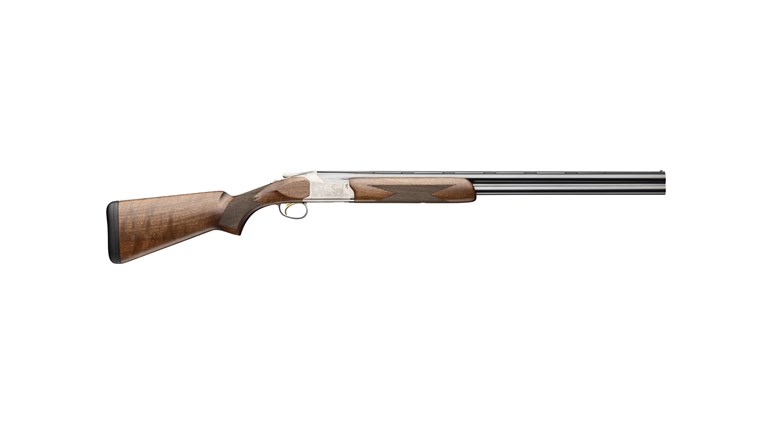
It is said, and rightfully so, that tension is the killer of performance. When it comes to pushing yourself to a higher level of shooting performance, skill and talent fall somewhere between a science and art.
Those seeking to meet a certain standard or pass a known qualification are aware of the accuracy and time requirements. However, if that standard hovers at the very edge or just outside of your shooting-skills envelop, the need for next-level training becomes a priority.
Reaching for something beyond your ability has frustrated competitors since the dawn of time. Those who desire to get better at something feel the passion and are motivated by it to put in the work. Moving past your current skill level takes above-the-norm dedication, commitment and, more importantly, consistent discipline.
As with all elite performance requirements, shooting well is about tuning your skills performance to its highest level. Whether training for defensive application (combat) or competition, when the “go” signal is given it’s all about how well you can perform. How well you shoot, that is how well you can perform your shooting skills, can be measured in terms of both speed and accuracy.
Should you train to meet a standard or qualification time-hits (aka hit-factor) requirement, then you must hold yourself accountable to both accuracy and speed. However, your goals, although challenging, should also be attainable.
If you’re trying out competition shooting for the very first time and you haven’t shot more than 50 rounds throughout your entire lifetime, then the odds on your winning a world-class competition next weekend are slim to none.
Stair Step Approach
Stair stepping your way up in training to develop your skills is the better route. Set small, more attainable goals and once they are met and they are repeatable, let’s say 80 percent of the time, then you’re ready to set the next milestone and so on as you move toward your planned ultimate performance destination.
As your performance increases you want to try and stack your skills upon the fundamentals that got you where you are today as they are the concrete foundation you can fall back upon as your baseline. To move forward is to push yourself past that comfort zone and reach into the space beyond your skills envelope.
Over the years, when working with specialty teams personnel who operate at a very high-performance level, I asked them how they consistently perform at that tier-one level and the answer was always the same: “Our fundamentals are solid.” Building upon a bedrock of sound fundamentals is paramount to raising performance.
Most coaches teach you how to accomplish a task and then push past your limit, find out where the wheels fall off and ask the honest question “why?”
Should you find the reason why, then that’s where you focus your efforts. For example: should you discover your grip starts to fall apart below .25 splits, you know what to work toward and what you need to fix.
Locate, Isolate, Eliminate
You can’t fix something you can’t see, so the very first step in developing your next level skills is to observe exactly what caused the error. Once you’ve tracked the cues and have isolated the cause you can then iron out the wrinkles. One of the most common, but often overlooked cues is tension.
When you start to push the fundamental shooting mechanics such as trigger press, grip, muzzle stability, hold control and the like, you will inevitably find yourself tangling with tension.
Tension is a performance killer. It causes mayhem, panic, chaos, pressure, loss of control and undisciplined actions. It can get in between your earmuffs and spread like a metastasizing cancer, negatively impact your performance and crush your very soul.
You can experience a little bit of tension or a lot of tension. Tension can be added to the shooting process before you even start or at any time throughout the process. It can be introduced at the beginning, right smack in the middle and even at the very end of the read-aim-fire process even at 98/100ths the way through your final trigger press.
Any tension whatsoever equates to energy and energy equates to unwanted inputs which require correction which cost more time or accuracy, which of course, add more tension!
Kill the Killer
How tension works is that you’re trying instead of doing. Every shooter falls prey to this personal performance evil. Instead of shooting you’re ‘trying to go fast’ or your thinking ‘don’t miss,’ or take your foot off the mental focus gas pedal or something along those lines. Regardless of what it may be, such stray voltage is exactly that – voltage – it’s a surge of energy that attenuates mental focus and replaces that focus with tension which, as energy, makes inputs that need correction.
The harder you push the process, the more stress, and the greater likelihood of your adding tension the performance killer. To kill the killer is to remain calm, stay mentally focused on the task at hand, and allow your skills to do without trying. Coolness between the earmuffs is your best defense against this killer and can give you the upper hand in controlling it when you tango with tension.



































